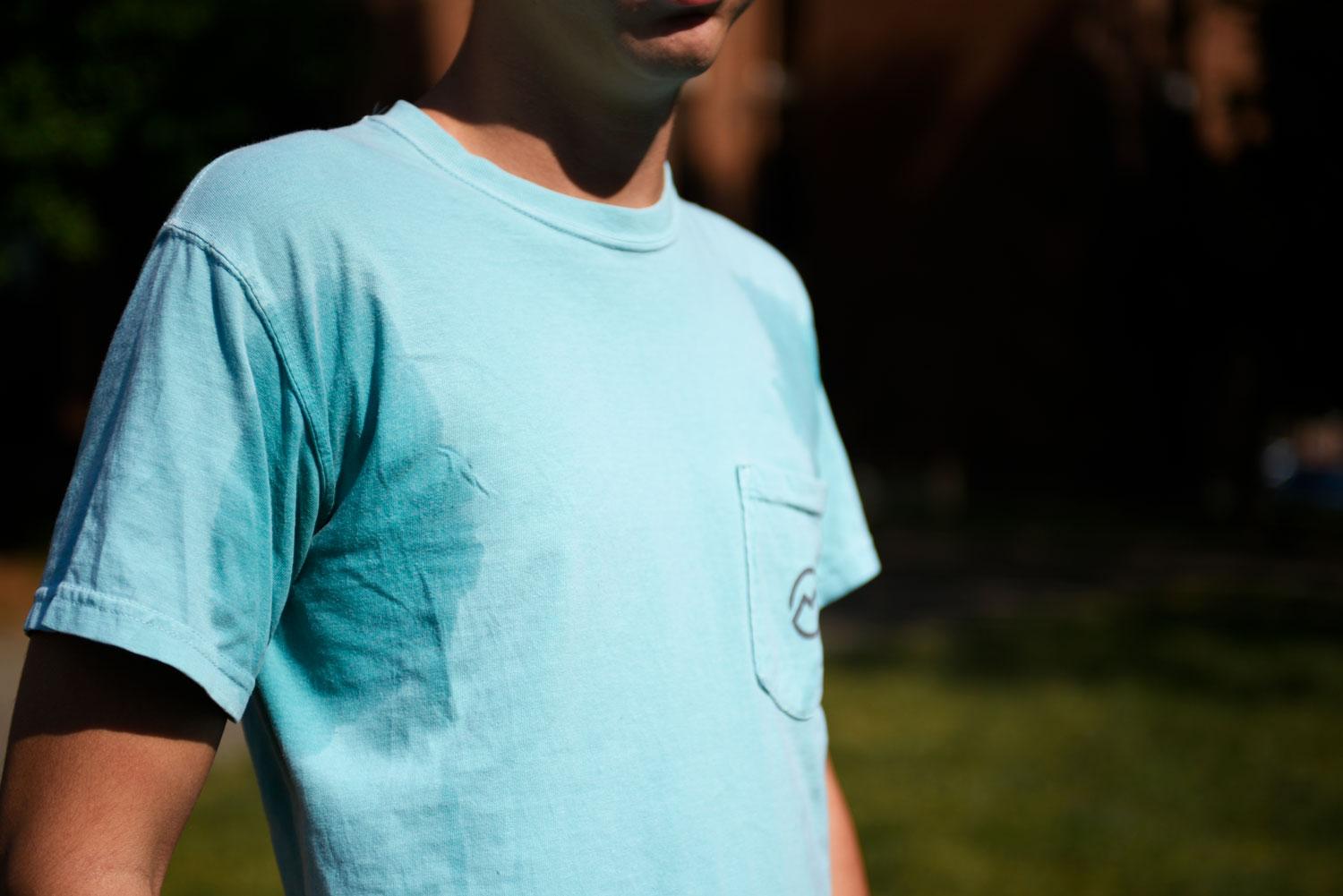Going back to school is hard for everyone, but Hilltoppers have a few extra challenges to deal with. Namely, sweat.
Sweat, amazingly, does more than burn your eyes. Your sweat talks to you and tells you all kinds of things about yourself. Just like any relationship, your relationship with your sweat can become the source of a lot of stress if it goes ignored. Relationships center on communication. Spend some time learning about what your sweat is, what it’s telling you and most importantly, what type of future you may have together.
Sweat is here to help
Most people don’t enjoy sweating. If you sweat a lot, you have to take more showers, do more laundry and buy more deodorant. For college students, this can really hurt the budget, so these are totally practical reasons to dislike sweating.
However, people also dislike sweating because it’s embarrassing and gross. These are not necessarily practical reasons to hate sweat because sweating is actually super amazing and helpful. If we didn’t sweat we would literally die, so don’t hate on it. It’s got your back.
Sweating is a process that helps cool down the body. As mammals, humans are homeotherms, which means our bodies can maintain a relatively constant healthy body temperature metabolically.
However, not all animals are homeotherms. Some are ectotherms, meaning they have to rely on their environment to keep their bodies at a healthy temperature.
Take a second and think about how lucky you are to be a homeotherm. If you were an ectotherm, your life would rely on WKU’s heating and cooling systems, which we all know can be pretty unreliable.
Sweat glands
Be happy you have sweat glands.
Except for your lips, sweat glands are spread across your entire body, which means you can sweat in some pretty interesting places.
Sweat comes from two types of sweat glands, eccrine and apocrine glands.
Eccrine glands produce odorless, clear sweat while apocrine glands produce a thick white sweat that creates body odor when it comes in contact with bacteria that lives on your skin. I could tell you where these glands are located on your body, but based on the description, I’m sure you can guess (Hint: your underarms have both).
Anyway, sweat is made of up of mostly water but also ammonia, urea, salt and sugar. These are harmless chemicals that human bodies naturally produce — that’s not something to be embarrassed of.
Why do we sweat?
We obviously sweat to keep cool, but there is still a little more going on.
When your body is overheating, your brain and sympathetic nervous system tell certain glands to produce sweat. The goal is to cover the body in liquid so that it evaporates off.
Unfortunately, because we live in Kentucky, humidity tends to get in the way. Humidity is the amount of water vapor in the air. When there is more water vapor in the air, meaning there is a higher humidity, it is harder for liquids to evaporate. WKU usually has pretty high humidity, meaning sweat tends to stick around.
However, sweat doesn’t necessarily have to evaporate to keep you cool. Sweat can also cool you with convectional heat transfer. This means that as air or water moves past your skin, it takes heat with it.
You can also sweat when you’re not necessarily hot. The nerves that activate your sweat glands also respond to physical activity, emotions, caffeine, and hormones. If you’re sweating a lot, stop and ask yourself why. Are you wearing hot clothes? Did a cute girl or guy just smile at you? Do you need to take the elevator? Are you wearing a sweater while you’re walking up the Hill with a cup of coffee after your hamster died while you’re reading flashcards for a hard quiz you have to take in an hour?
Basically, your sweat tells you that you’re working hard. If you want to sweat less, start asking yourself questions about what’s causing it.
Can we control how much we sweat?
If you’re worried about how much you’re sweating, then there are some changes you can make at home.
Nervous sweating might be a sign of anxiety. If that’s the case, you could stop by the WKU Counseling and Testing Center and learn about some relaxation methods.
Excessive sweating could also be a sign of hyperhidrosis, a condition which can benefit from medical treatment. These could range from buying a better antiperspirant to pouring acid on your underarms. But don’t actually pour acid on your underarms. It works, but it burns. Trust me on this.
A popular home remedy to help stop sweating is using body powder on parts of your body that typically sweat a lot.
If you’re a really sweaty person and you’re worried about it, talk to your doctor. They’re pretty smart. If you’re a sweaty person and have just accepted this fact, you can always manage it by packing extra clothes in your backpack.
At the end of the day, everyone sweats. Personally, I blame Hollywood for the negative image associated with sweat stains. Don’t try to meet an unrealistic body image. Sweat is here to help, and you’re not less of a person just because you smell a little funky. That actually means you’re a healthy person.
Keep your chin up. Biology says you have the right to bear sweaty arms.


